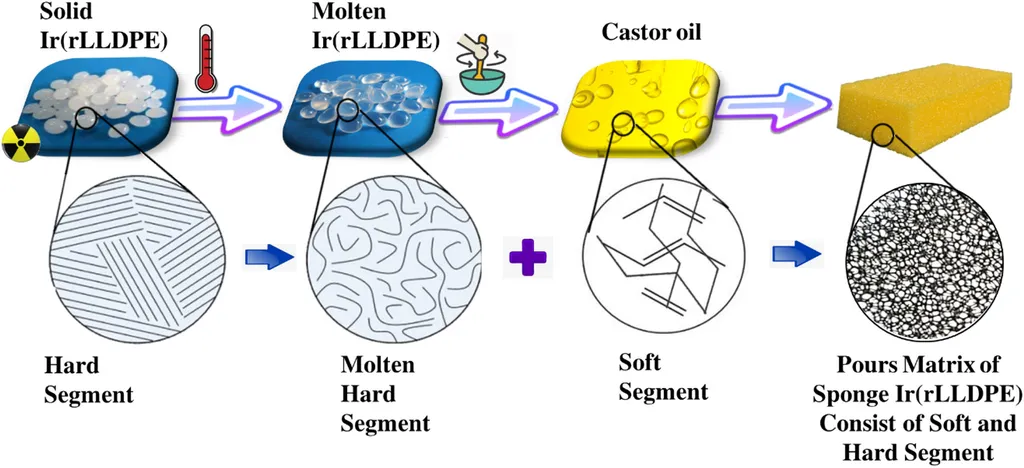In the quest for sustainability and innovation within the textile industry, a groundbreaking study has emerged that could reshape how we think about polyester fibers. Camila Gomes Melo, a researcher affiliated with the Federal University of Pernambuco, Brazil, has published a study in the journal ‘Materials Research’ (translated from Portuguese) that explores the effects of ionizing radiation on the physicochemical properties of polyester multifilaments. This research could have significant implications for the energy sector, particularly in the development of advanced materials with tailored properties.
Polyethylene Terephthalate (PET), commonly known as Polyester (PES), is a staple in the textile industry due to its durability and widespread use. However, the environmental impact of traditional manufacturing processes has been a growing concern. Melo’s study introduces ionizing radiation as an eco-friendly alternative for modifying the properties of polyester fibers. This method leverages the formation of reactive species to alter the material’s characteristics, potentially opening new avenues for sustainable textile production.
The research involved subjecting polyester microfiber multifilaments to Cobalt-60 gamma irradiation and analyzing the resulting changes in toughness, elongation resistance, thermal stability, and chemical structure. The findings revealed that gamma irradiation effectively modified the physicochemical properties of the fibers. “The Cobalt-60 gamma irradiation process was effective in altering the properties of the microfiber multifilament analyzed,” Melo noted, highlighting the potential of this method to adapt polyester fibers to meet specific consumer demands.
One of the key aspects of this study is its focus on tenacity and elongation, which are critical factors in the performance of textile materials. By understanding how ionizing radiation affects these properties, manufacturers can develop fibers that are not only more sustainable but also better suited for various applications. The use of Thermogravimetric Analysis (TGA) and Fourier-transform infrared spectroscopy (FTIR) provided comprehensive insights into the thermal and chemical changes induced by radiation, further underscoring the potential of this approach.
The implications of this research extend beyond the textile industry. In the energy sector, advanced materials with tailored properties are in high demand for applications such as insulation, protective clothing, and high-performance textiles. The ability to modify polyester fibers using ionizing radiation could lead to the development of materials that are more durable, efficient, and environmentally friendly. This could have a profound impact on the energy sector, where the demand for sustainable and high-performance materials is continually growing.
As the world moves towards a more sustainable future, innovations like those presented in Melo’s study are crucial. By leveraging ionizing radiation to modify polyester fibers, the textile industry can reduce its environmental footprint while meeting the evolving needs of consumers. This research not only highlights the potential of ionizing radiation as a tool for material modification but also paves the way for future developments in the field of advanced materials.
In conclusion, Camila Gomes Melo’s research offers a promising avenue for sustainable textile production and advanced material development. As the energy sector continues to seek innovative solutions, the insights gained from this study could play a pivotal role in shaping the future of material science. The publication of this research in ‘Materials Research’ further underscores its significance and potential impact on various industries.

